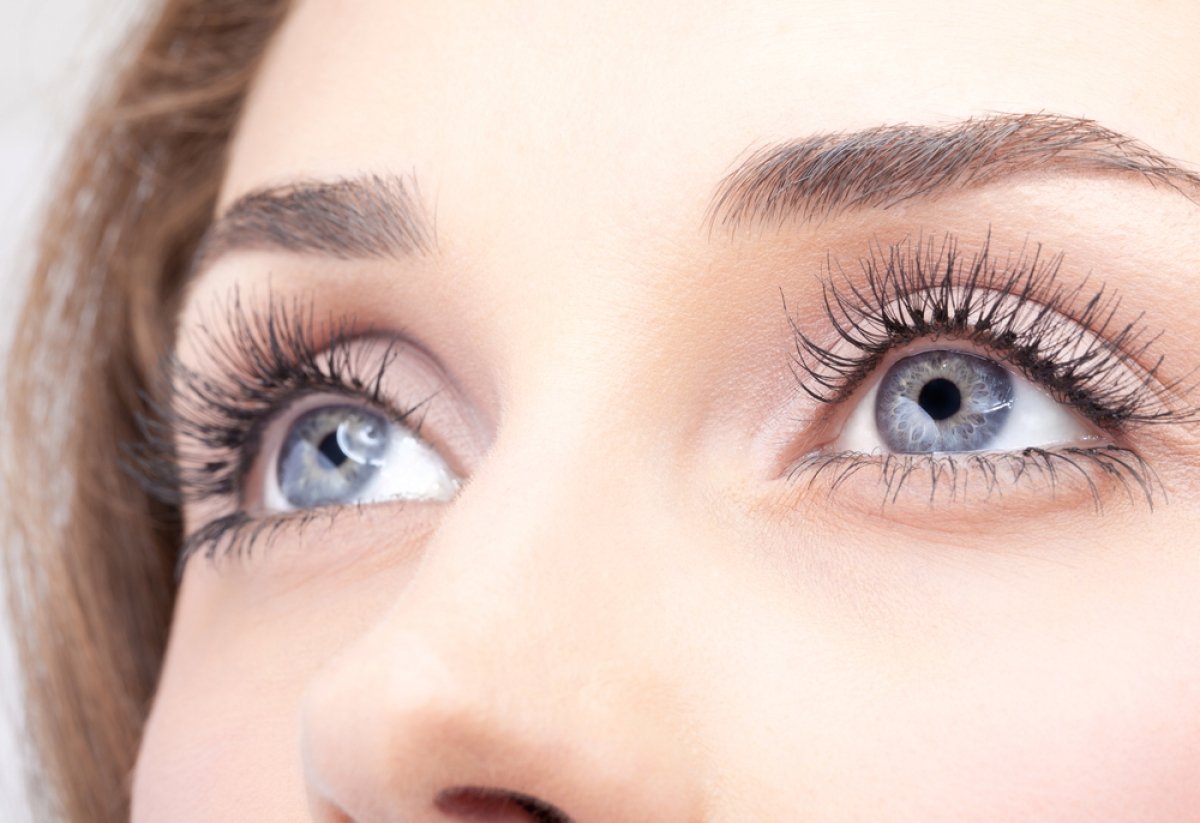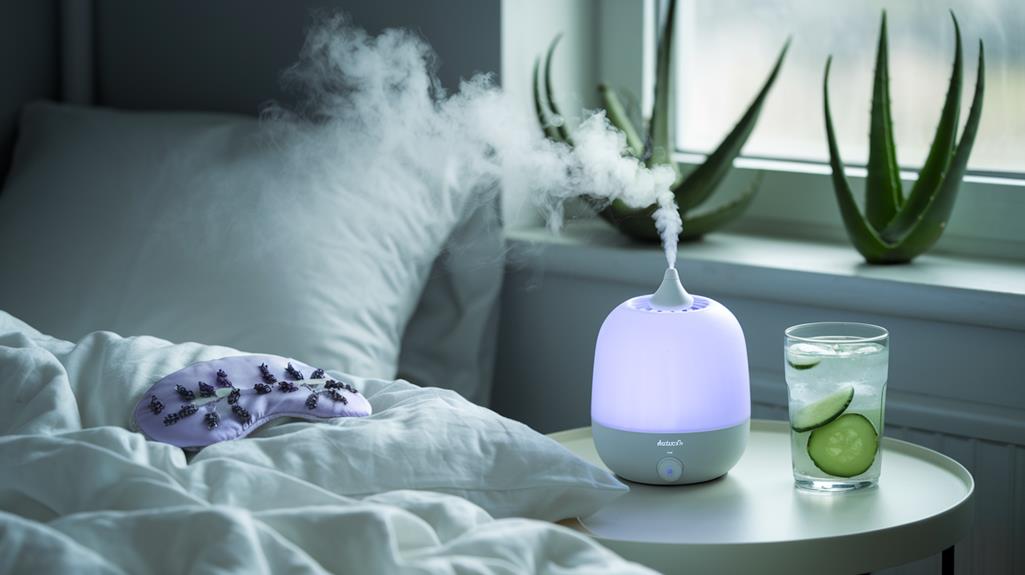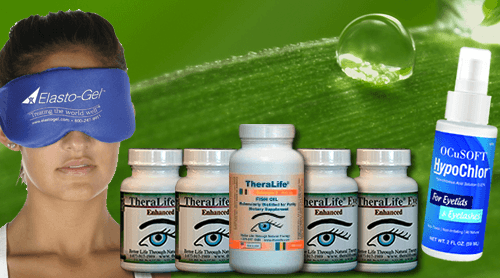To prevent eye irritation and discomfort, consider the benefits of TheraLife’s products, which are designed to enhance eye health through natural and effective solutions.
TheraLife offers comprehensive treatments for a range of eye conditions, including blepharitis, dry eyes, and uveitis, by utilizing a blend of natural ingredients that target inflammation and promote healing.
For those suffering from blepharitis, TheraLife provides targeted treatments that help reduce symptoms and improve eyelid hygiene, addressing both the cause and discomfort associated with the condition.
Their product line also includes solutions for managing dry eyes, even in challenging environments, by focusing on internal healing through dietary supplements and lifestyle adjustments.
TheraLife’s approach extends to managing eye conditions related to autoimmune disorders, such as Sjögren’s syndrome, by incorporating anti-inflammatory diets and specialized formulations to alleviate dryness and irritation.
For individuals with sensitive eyes or those who frequently use makeup, TheraLife offers guidelines and products to maintain eye health while minimizing adverse effects.
In addition to addressing specific conditions, TheraLife promotes a holistic approach to eye care, emphasizing hydration, environmental management, and protection against digital and UV strain.
Persistent eye issues should still be evaluated by a healthcare professional, but TheraLife’s products can significantly contribute to maintaining and improving eye comfort and health.
Key Takeaways
- Use warm compresses to soothe discomfort and unblock tear glands.
- Apply artificial tears regularly to relieve dryness and maintain eye lubrication.
- Employ air purifiers with HEPA filters to reduce airborne allergens like pollen and dust.
- Implement the 20-20-20 rule to alleviate digital eye strain and prevent irritation.
- Maintain indoor humidity between 30-50% using humidifiers to prevent dry eye conditions.
Understanding Eye Irritation
Eye irritation is a common condition that affects many individuals, presenting a range of symptoms such as dryness, grittiness, itchiness, redness, and swelling. These symptoms might be accompanied by blurred vision and light sensitivity, greatly impacting daily activities.
Understanding the causes of eye irritation is essential for effective management. Common culprits include allergies, digital eye strain from prolonged screen exposure, and foreign objects like dust or eyelashes. Conditions such as conjunctivitis and styes also contribute to discomfort, often with additional symptoms like pain, discharge, and eyelid swelling.
Chronic dry eyes, linked with complications like blepharitis and MGD, can further exacerbate irritation and discomfort. To alleviate minor eye irritation, you can turn to home remedies. Applying warm compresses can soothe discomfort and reduce swelling, while artificial tears help lubricate and relieve dryness. Saline rinses might assist in flushing out irritants.
However, persistent or severe symptoms warrant medical evaluation to rule out serious conditions. Preventive measures play an essential role in managing eye health. Maintaining proper eye hygiene, limiting screen time by adhering to the 20-20-20 rule (taking a 20-second break to view something 20 feet away every 20 minutes), and minimizing exposure to allergens can effectively reduce the risk of eye irritation.
Common Environmental Irritants
You’re likely aware that pollen and dust are pervasive environmental irritants, which can trigger eye irritation through direct contact with the ocular surface.
In addition to these common irritants, exposure to smoke or chemicals can increase the risk of red eyes, as they exacerbate symptoms and sensitivity.
Maintaining ideal indoor air quality is essential, as pollutants and allergens can amplify sensitivity and discomfort.
To mitigate these effects, consider using air purifiers and regularly cleaning living spaces to reduce allergen exposure.
Pollen and Dust Exposure
During allergy season, pollen and dust become prevalent environmental irritants that can lead to considerable eye discomfort. Pollen, a pervasive allergen, peaks in spring and summer as plants release spores. These microscopic particles can trigger symptoms like redness, itchiness, and watery eyes, indicative of allergic conjunctivitis.
Similarly, dust particles, including those from dust mites, accumulate in your home, exacerbating eye irritation. Understanding the daily fluctuations in pollen counts—typically higher in the morning and on windy days—can help you manage your exposure. Regular eye check-ups are also essential for monitoring and managing eye conditions effectively.
To mitigate these effects, consider adopting home remedies and protective measures. Keeping your windows closed reduces the influx of outdoor allergens. Additionally, the use of HEPA filters is scientifically proven to capture pollen and dust particles, considerably lowering allergen exposure indoors.
This can be crucial in reducing the severity of allergic reactions and associated eye irritation. By monitoring local pollen forecasts and employing these strategies, you can effectively manage exposure to these environmental irritants, alleviating symptoms of allergic conjunctivitis and promoting eye health.
Implementing these steps as part of your routine can lead to tangible improvements in comfort and well-being during allergy season.
Air Quality Impact
A substantial impact on eye health arises from the quality of air you breathe, laden with common environmental irritants. Poor air quality, often worsened by pollution, introduces irritants like dust, smoke, and pollen, which can cause eye irritation and discomfort. These particles can exacerbate conditions such as dry eyes, leading to persistent itching and redness.
Indoors, pollutants such as mold, pet dander, and volatile organic compounds (VOCs) from everyday products further contribute to eye discomfort by triggering allergic responses.
To combat these effects, enhancing air quality is essential. Installing air purifiers equipped with HEPA filters can considerably decrease airborne allergens and pollutants, thereby improving eye comfort. These filters capture minute particles, effectively reducing your exposure to harmful irritants.
Additionally, maintaining proper humidity levels within your home—ideally between 30-50%—can alleviate dry air conditions, further mitigating the risk of eye dryness and irritation.
If you suffer from seasonal allergies, outdoor allergens like pollen can intensify symptoms, traveling long distances to invade your space. By addressing both indoor and outdoor air quality concerns, you can considerably reduce the risk of eye irritation, ensuring a more comfortable and healthy living environment.
Effective Home Remedies
To effectively address eye irritation at home, consider incorporating some scientifically-backed remedies into your routine. Start by using warm compresses on your eyes for 5-10 minutes. This simple home remedy can help alleviate irritation and swelling by improving blood circulation and unblocking tear glands.
If you experience dry eyes, over-the-counter artificial tears are essential to soothe irritation. These drops provide much-needed lubrication, especially if your discomfort stems from environmental factors or prolonged screen time.
For those seeking natural methods, try saline rinses made from distilled water and salt. This gentle flushing technique can cleanse your eyes, removing irritants and maintaining hygiene.
Cold compresses or chilled cucumber slices applied to closed eyes offer immediate cooling relief. They can effectively reduce inflammation and soothe itchy or irritated eyes.
Additionally, aloe vera gel, known for its anti-inflammatory properties, can be applied around the eyes. This natural remedy may help reduce inflammation and provide relief from irritation.
Remember, these home remedies are designed to address mild symptoms. If irritation persists, consult a healthcare professional for further evaluation and guidance.
Prioritizing these remedies can enhance your eye comfort and overall well-being.
Lifestyle Tips for Prevention
While home remedies can provide relief from eye irritation, adopting preventive lifestyle measures guarantees long-term eye health.
Begin by implementing the 20-20-20 rule to combat digital eye strain: every 20 minutes, take a 20-second break to focus on an object 20 feet away. This simple adjustment can greatly reduce eye fatigue and irritation caused by prolonged screen time.
Proper hydration is essential. Make sure you drink enough water daily, as dehydration is known to exacerbate dry eyes and irritation.
Integrating a humidifier into your living space can further prevent dryness by maintaining ideal moisture levels in the air. This is particularly beneficial in dry environments where humidity is low.
To minimize exposure to allergens, regularly clean your home by dusting and vacuuming. Allergens are common culprits in triggering eye irritation, so reducing their presence will help maintain eye comfort.
Additionally, safeguard your eyes from harmful UV rays by wearing sunglasses with UV protection whenever you’re outdoors. This practice not only reduces irritation from sunlight but also shields against potential environmental irritants.
Incorporating these lifestyle tips can effectively prevent eye irritation, promoting ideal eye health alongside home remedies.
Eye Care Best Practices
Someone struggling with eye irritation can benefit from adopting best practices in eye care to guarantee ideal eye health.
Implementing preventive measures such as the 20-20-20 rule can considerably reduce digital eye strain. This involves taking a 20-second break every 20 minutes to look at something 20 feet away. This simple technique helps relax eye muscles and minimize strain from prolonged screen use.
Maintaining an ideal humidity level between 30-50% in your home is essential to prevent dry eyes, especially in winter or arid conditions. A humidifier can be an effective home remedy to maintain these levels, reducing eye irritation from dry environments.
Regular use of artificial tear drops is also recommended to lubricate and soothe dry eyes, alleviating discomfort from environmental irritants or extended screen time.
Prioritizing eye hygiene is vital. Wash your hands frequently and avoid touching your eyes to lower the risk of infections and irritation.
Finally, protect your eyes outdoors by wearing sunglasses with UV protection. This preventive measure shields your eyes from harmful UV rays and reduces irritation from environmental factors.
When to Seek Help
Recognizing when to seek medical intervention for eye irritation is essential for your ocular health.
If you experience sudden, severe symptoms such as vision changes or intense pain, or if home remedies haven’t alleviated irritation within a few days, it’s important to consult a healthcare provider.
Additionally, persistent unusual discharge, systemic symptoms, or a history of eye issues necessitates professional evaluation to prevent further complications.
Urgent Symptoms Checklist
How do you know when eye irritation requires immediate medical attention? Recognizing urgent symptoms is vital for protecting your vision. If you experience severe eye pain or sudden vision loss, seek medical help right away. These symptoms can indicate critical conditions that demand urgent care.
Likewise, if your eyes produce yellow, green, or brown discharge, a healthcare professional should evaluate you to rule out eye infections like conjunctivitis. Persistent redness and irritation lasting over a week, despite home remedies, necessitate a medical evaluation to uncover potential underlying issues.
Pay close attention to light sensitivity, especially when it’s accompanied by pain. This could be a sign of a serious problem requiring prompt medical assessment. Additionally, if you experience fever or systemic illness alongside eye symptoms, it’s important to seek medical help. These signs may indicate an infection that needs immediate treatment.
Don’t ignore these symptoms. Timely medical intervention can prevent complications and preserve your eye health. Always prioritize seeking help when urgent symptoms arise, ensuring you receive the appropriate care and treatment necessary for your ocular well-being. Your eyes deserve the best care to maintain peak vision health.
Persistent Irritation Indicators
While urgent symptoms demand immediate attention, persistent irritation shouldn’t be overlooked either. If your eye irritation lasts more than a few days, it might signal an underlying condition requiring medical attention. Persistent symptoms, like a foreign object sensation or blurred vision, require a visit to an ophthalmologist for a thorough examination.
Unusual discharge, particularly yellow or green, often accompanies infections such as conjunctivitis. If you notice this discharge along with redness and swelling, it’s crucial to consult a healthcare provider promptly. Ignoring these signs could worsen the condition, making home remedies insufficient.
Severe irritation accompanied by intense pain, sensitivity to light, or sudden vision changes indicates the need for immediate care. These symptoms could suggest more serious issues that require professional intervention. Additionally, any irritation following eye trauma or chemical exposure must be evaluated urgently, as these can lead to complications if untreated.
Don’t hesitate to seek help when persistent symptoms arise. Timely medical attention not only addresses potential infections but also prevents exacerbation of any underlying condition.
Prioritizing eye health guarantees that any severe irritation is managed appropriately, safeguarding your vision for the future.
Professional Evaluation Necessity
Many instances of eye irritation resolve on their own, but it’s important to know when professional evaluation becomes necessary. Persistent eye irritation lasting more than a few days, despite home remedies, could indicate an underlying condition that requires a professional evaluation. An eye care specialist can assess your symptoms to determine the proper management plan.
Immediate attention is essential if you experience serious symptoms such as sudden vision loss, significant pain, or unusual discharge, which might signal severe eye issues. Sensitivity to light or the sensation of a foreign object in your eye also warrants a professional evaluation. These symptoms can potentially lead to more severe conditions if not promptly addressed.
For individuals with a history of eye injuries or infections, it’s even more important to seek professional advice for new symptoms to prevent complications and guarantee proper management. Routine eye examinations play a crucial role for those with chronic eye problems or a family history of eye diseases.
Regular check-ups help in early detection and intervention, safeguarding your ocular health. Don’t hesitate to consult an eye care specialist when your symptoms persist or worsen, ensuring the longevity and health of your vision.
Frequently Asked Questions
How Do You Stop Your Eye From Being Irritated?
To stop eye irritation, prioritize eye care by identifying irritation causes like allergies and environmental factors.
Manage allergies and maintain hydration to soothe your eyes. Limit screen time and guarantee proper lighting to reduce strain.
If you wear contact lenses, follow hygiene protocols.
Consider dietary effects on eye health and guarantee adequate sleep quality for recovery.
These steps collectively address various aspects influencing eye irritation, promoting overall eye comfort and health.
What’s the Best Cure for Eye Irritation?
To alleviate eye irritation, you can use eye drops to lubricate and soothe.
A cold compress or cucumber slices can reduce inflammation and redness.
For a natural remedy, apply aloe vera or chamomile tea bags for their soothing properties.
Honey application and coconut oil may offer antimicrobial benefits.
Green tea and lavender oil can provide additional calming effects.
Consult your healthcare provider if symptoms persist for a more targeted treatment plan.
What Soothes Irritated Skin Around Eyes Naturally?
Combatting chronic irritation calls for cool compresses and calming concoctions.
Consider aloe vera’s anti-inflammatory properties or cucumber slices for hydration. Chilled green tea or chamomile compresses can calm inflammation. A honey mask or coconut oil offers moisture, while oatmeal paste soothes sensitive skin.
Rose water refreshes, and vitamin E repairs. Cold compresses provide quick relief.
Prioritize these scientifically-backed solutions to promote peaceful skin around your eyes, ensuring a patient-focused approach.
What Is the Best Home Remedy for Eyes?
For soothing eye irritation, apply a cold compress to reduce swelling.
Use chamomile or green tea bags for anti-inflammatory benefits.
Cucumber slices hydrate and calm the area.
Aloe vera gel provides soothing relief.
Coconut oil and almond oil, rich in vitamin E, nourish and protect.
A honey mask can offer antibacterial properties, and rose water refreshes and tones.
These remedies, backed by scientific understanding, focus on calming and healing your eyes effectively.
Conclusion
TheraLife’s products offer a holistic approach to eye care, providing relief for various eye conditions and ensuring long-term eye health. By integrating these products into your daily routine, you can effectively treat issues like blepharitis, dry eyes, and uveitis. TheraLife’s unique formulations work from the inside out, promoting natural healing and reducing the need for external interventions. Their comprehensive range includes supplements specifically designed to enhance tear production and improve eye comfort, while also addressing underlying causes of eye irritations.
For those struggling with persistent eye challenges, TheraLife offers targeted solutions, such as their Eye Enhanced formula, which combines natural ingredients to combat dryness and inflammation. By focusing on the root causes, these products not only alleviate symptoms but also support overall eye function and health. TheraLife’s commitment to natural treatments provides a gentle yet effective alternative to conventional methods, ensuring that your eyes remain clear, comfortable, and well-protected.
If you experience ongoing irritation or symptoms, it’s essential to seek professional advice. TheraLife’s approach to eye care is like cultivating a cherished garden—consistent attention and care will allow your eyes to thrive and illuminate your world.




